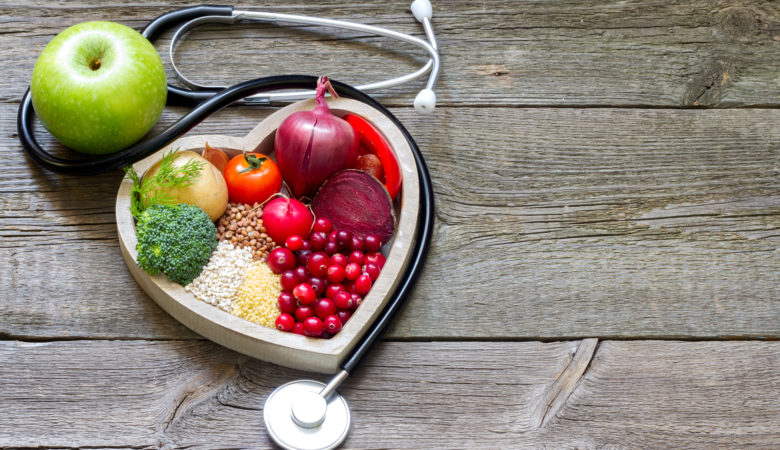Heart Health Hacking Starts with Food (Plants, Specifically)

It’s time to get serious about your heart health. Cardiovascular disease is the leading cause of death in the United States, according to the CDC. Every 36 seconds, someone in America dies of heart disease—that’s one in every four deaths, or about 659,000 people per year. Unless you have a family history of heart disease, you might believe it could never happen to you, or it’s something you can worry about “later.” Unfortunately, heart disease can strike at any age.
Keeping your ticker in good fighting shape is a key to longevity. The easiest way to do this is by changing your diet. Scientists have found that a plant-based diet offers significant heart health benefits, but you don’t have to give up meat entirely. Making small, sustainable changes over the long term is a great way to adapt to a heart-healthy lifestyle. Here’s how to hack your heart health for the better.
General guidelines for a heart-healthy diet
There’s a lot more to eating with a mind for your heart than grabbing a box of Cheerios or trading pizza for a salad. Here are some easy tips to start a heart-healthy diet:
- Eat more fruits and vegetables: Adding more produce to your diet is an easy way to kickstart your heart health journey. They’re a smart source of dietary fiber, vitamins and minerals, which makes them ideal as the bulk of your diet. It’s easier to cut back on protein, fat and sugar when you have hearty vegetables and sweet fruits to substitute. Stay away from fried vegetables or those with heavy, creamy sauces.
- Choose healthy sources of fat: The types of fat you consume make a big difference in heart health. Trans fats and saturated fats can lead to high blood cholesterol levels and plaque buildup in the arteries. This in turn increases the risk of stroke and heart attack. Check labels for trans fats or partially hydrogenated oil, and use less oil and butter in your cooking. Olive oil is a great heart-friendly source of healthy fats, thanks to its high omega-3 fatty acid content.
- Limit your sodium intake: Most adults should ingest about a teaspoon of salt per day—but you’re probably consuming a lot more than you realize. Processed and packaged foods are loaded with salt. Restaurant food and condiments are also hidden sources of sodium. Instead, look for salt-free seasoning blends, herbs, spices and low-sodium packaged foods.
- Eat more lean proteins: While it might be nice to feast on red meat every night, it’s not a good idea for your heart health. Consuming lean proteins—whether plant-based or meat—will reduce your chances of developing heart disease while also cutting down on fat and calories. Chicken, fish, certain cuts of pork and plant-based proteins are all widely available and delicious choices instead.
- Switch to whole grains: Whole grains and fiber help regulate blood pressure and heart health. Instead of processed flours, breads and cereals, opt for a whole grain choice. Bonus: it will help regulate your digestion, too.
Don’t forget to let yourself have the occasional treat, too: it goes a long way toward making sustainable changes.
Is a plant-based diet right for you?
If you’ve been debating whether to cut out animal products entirely, here’s the good news: it’s not necessary in order to eat a heart-healthy diet. However, we recommend cutting down on your meat consumption. This accomplishes several things: you’re less likely to consume excess fat and calories, lower meat consumption is better for the environment and you’re more likely to get adequate servings of fruit, vegetables and whole grain. And with the rising cost of groceries, the fact that a plant-based diet is often cheaper is just a bonus.
To cut down on meat consumption, try introducing more meatless meals into your weekly meal plan. As you become familiar with more plant-based recipes, it’s easier to whip something up on the fly—plus, you might just end up craving vegetable dishes more than meat.
When considering a major dietary shift, it’s always wise to talk to your medical doctor. Not only can they give you additional tips on eating a heart-healthy diet, but they’ll be able to account for your individual nutritional needs. Everyone is different, and you may need to focus on certain food groups to meet your own needs.
Taking care of your heart health is important at every age. In addition to eating a healthy, balanced diet (meatless or otherwise), make sure to get plenty of exercise and sunlight—your heart’s depending on it.

